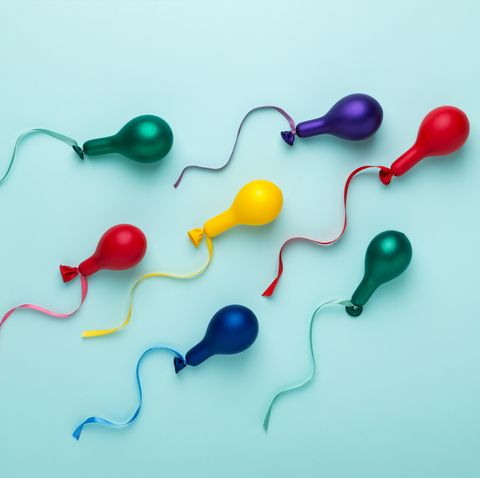Can I get pregnant naturally after 45?
When menstruations begin to be irregular, and that there is no longer a possibility of becoming pregnant, many women think that it is the end of their fertility.
But this is not exactly true.
Two reasons of concern
When a woman reaches this time, the possibility of pregnancy can worry them because:
If they are sexually active, they have no interest in becoming pregnant, so they must consider contraception.
Pregnant near menopause?
If you are interested in conceiving
The woman who looks for the natural conception in this age will find more difficulties.
After 45 years, the cycle is usually less regular, and this makes it difficult to predict the date of ovulation, or even if it actually happens or not. In addition, oocytes are of high quality, and even if spontaneous conception occurs, there is a much higher rate of birth defects and spontaneous abortions with these pregnancies.
Why is reduced fertility of a woman at the onset of perimenopause?
Hormone imbalance
The large fluctuations in hormone levels that occur in the years leading up to menopause are those that affect fertility.
Anovulatory menstrual cycles
During menstruation, menstrual cycles begin without ovulation. If there is no ovulation, there is no possibility of pregnancy.
Ovulatory aging
The ability of the ovaries to produce good quality ovules decreases with age.
A woman is born with the ovules that she will have throughout her life, and the years go by, the ovules also get older, they become more prone to chromosomal abnormalities.
Decrease in ovarian reserve
It is due to decrease in the number of oocytes available in a woman’s ovaries.
If you do not want to get pregnant
Although fertility is reduced, there is still the possibility of pregnancy. If pregnancy is not desired it is important to consider the use of some contraceptive method.
No matter how irregular menstruations are, even if there are months in which bleeding does not appear, this does not rule out the possibility of conceiving.
It is important to remember that even after 12 consecutive months without menstruation, which is when it is considered that it is a woman with menopause, it is recommended to continue using contraceptives for 1 or 2 years after the last period (depending on the age of the patient). the woman).














